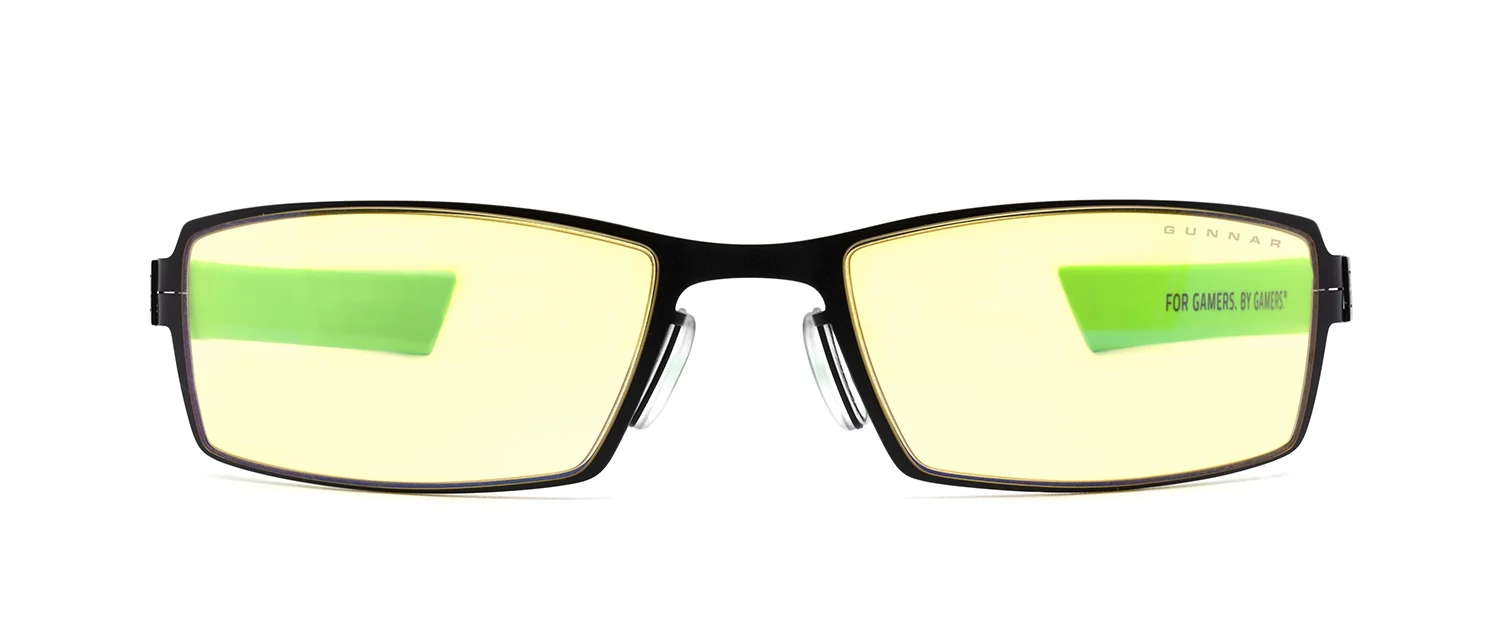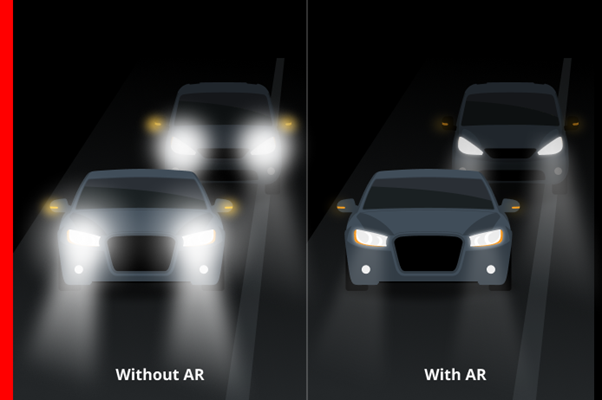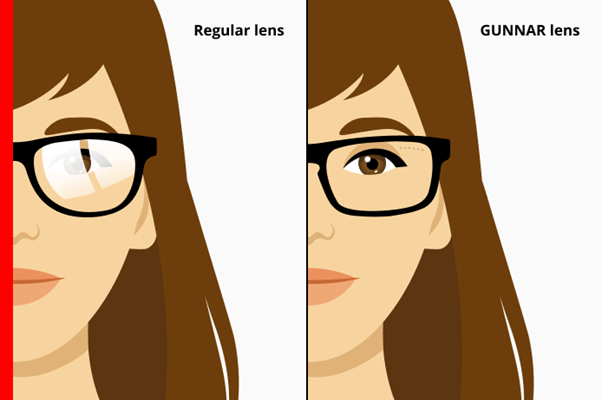Added to Cart Successfully
QTY: 1
Total:

Anybody who’s shopped for glasses knows that there are numerous lens options to choose from. Are there added benefits to the premium options or are all lenses created equal? While opting for an anti-reflective coating sounds simple enough to understand — a shield against glare — there are added benefits that you may not be aware of.
Here’s what you need to know before getting your next pair of glasses.
In its simplest form, an anti-reflective coating reduces light reflections on each side of the lens. Rather than act as a mirror, the lenses invite light through to improve your visual acuity.

Unfortunately, it’s not an uncommon experience driving at night when suddenly you become blinded by oncoming headlights. Without protective coating, instead of passing through the lens, the light reflects and sticks to your glasses creating a distracting bokeh wherever passing headlights appear. Anti-reflective lenses help avoid this potentially hazardous situation by allowing the headlights’ glare to flow through the glass.
There are also aesthetic benefits to wearing eyeglasses with anti-reflective coatings. Eyes take center stage in a bright room without distracting glares hogging the spotlight.

GUNNAR lenses are finished with AR Coating to limit distractions.
Standard anti-reflective coatings will help you have clear vision whether on the computer, exploring the outdoors, or enjoying a night out. However, reflections aren’t the only obstacles glasses have to overcome to deliver optimal optics.
Hydrophobic and oleophobic: you have probably come across these words when buying glasses, but what do they mean? While their names sound complex, their benefits are clear. Both hydrophobic and oleophobic anti-reflective coatings add another layer of protection to your lenses to fight off scratches, smudges, and stains. They also make it easier to maintain clean glasses with a smooth coating that invites any surface dwellers to see themselves out. Now that we know the similarities between each coating option, let’s dive into the differences.
Hydro (water) and phobic (dislike) combine to define what makes this anti-reflective coating a popular choice for those living in humid or rainy areas. Those who wear glasses have experienced trying to maintain clear vision on a rainy day. Regardless of how much you wipe away the drops, the water continues to build into a blinding wall. Hydrophobic anti-reflective coatings eliminate this nuisance by creating a surface that repels water molecules on the lens’ surface — allowing the water to slide off.
Additional benefits of hydrophobic lenses include:
• Sweat resistance, making them ideal for physical activity
• Anti-static properties to keep dust and dirt particles at bay
Whereas hydrophobic coatings fight against water, oleophobic lenses resist oils and grease. This benefit is a major plus for those who have lifted their glasses to the light only for them to appear as if the lenses were dusted for fingerprints. Oleophobic coatings make it easy to remove these stubborn smudges by forcing oils to bead together instead of allowing them stay intact. With no oil to stick to, lenses can effectively stave off dirtying or scratching particles.
Additional benefits of oleophobic lenses include:
• Less wear and tear on lenses from continual cleanings
• Maximum light transparency
When caring for anti-reflective coated lenses, use cleaners specifically formulated for them. Harsh chemicals may remove lens coatings, and the protection that comes with it. It is also important to wet lenses before wiping away smudges, as friction can be created between dry cloth fabric and a dry lens.
Just because lenses are anti-reflective doesn’t mean that they protect your eyes from all light sources. Blue light is emitted from digital devices, like your smartphone or computer. While there are some positives of blue wavelengths during the day — increased attention and reaction times — those same benefits turn negative at night. According to Harvard Health, “Blue light can affect your sleep and potentially cause disease.” As devices have become a part of our lives, day and night, it is important to shield your eyes from blue light.
The Blue Light Protection Factor was created to help buyers understand how well their lenses block out HEV (Blue Light) and UV light. At Gunnar, we design innovative eyeglass lenses that filter both light sources to provide your eyes complete protection against harmful rays. Now you can game at night, scroll through your feed, or shop online before bed without blue light ruining your sleep.
Get complete eye care protection with Gunnar glasses.
Sale up to 20% off for your next purchase in this month!